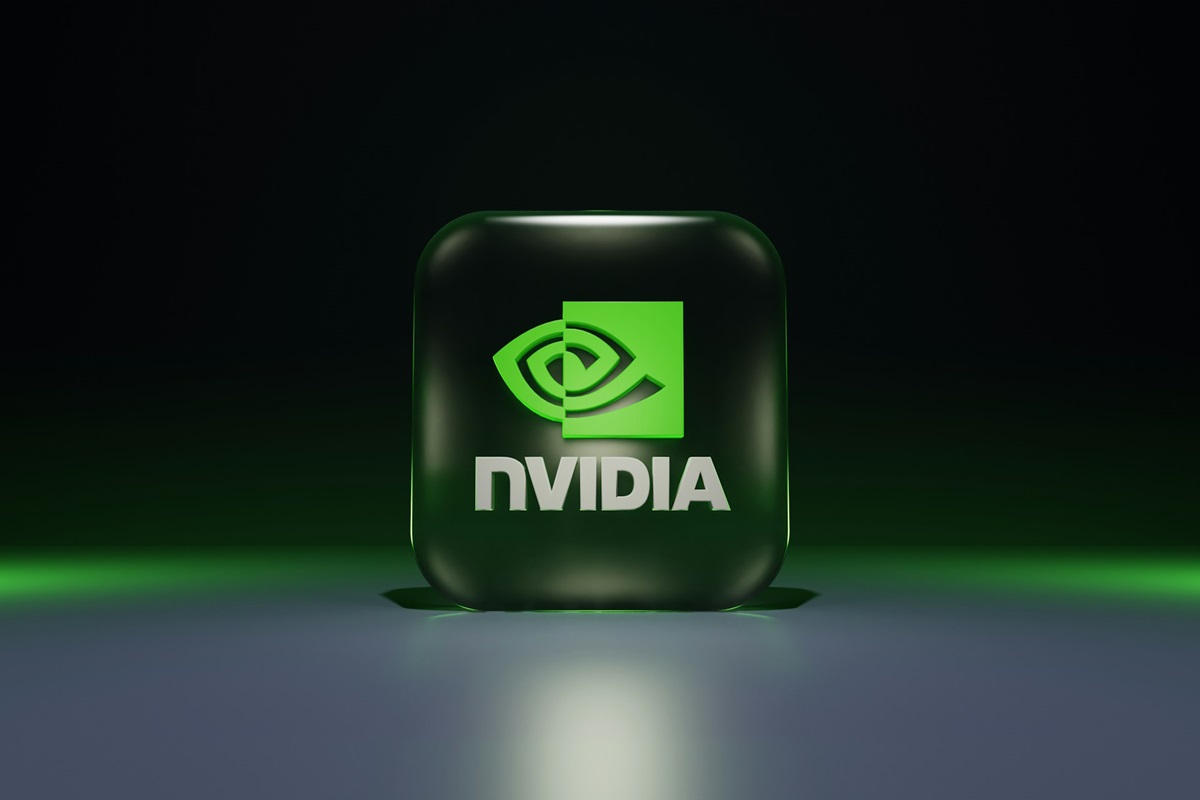Nvidia, last Wednesday, August 28, released earnings data for the last fiscal quarter, which testified that the financial performance of this company, which has become one of the main beneficiaries of the so-called artificial intelligence boom, once again exceeded the expectations of Wall Street analysts regarding the brand’s commercial results.

It is worth noting that the mentioned firm, which develops graphics processing units necessary for the training and subsequent operation of machine intelligence systems, has been on an impressive growth trajectory for two years. At the same time, Nvidia is now in a position where revenue increase is no longer what can be called one of the main or only the main goals. The corresponding specifics of the current reality, in the space of which the company is in the status of a business giant, riding a wave of growth against the background of active development of artificial intelligence, is especially relevant in the context of investor sentiment. This thesis means that investors may perceive the upward trajectory of financial indicators as an insufficient figure of the effectiveness of Nvidia, which actually is a functional structure of technical orientation. At the same time, in this case, the growth that has already become what can be called a constant quantity is not a self-sufficient value and is likely to be evaluated depending on the pace and scale of its dynamic. Nvidia, against the background of the successes of recent years, has found itself in a status where each new achievement raises the level of expectations. It is worth noting that such a logic of perception is, in principle, characteristic of estimating many processes moving along an upward trajectory.
It is also important that Nvidia’s growth has become the driving force behind a similar vector of the dynamic of the stock market of technology companies. The revenue of the graphics processing units developer for the second fiscal quarter ended July 28 was fixed at $30 billion. This indicator showed an increase of 122% year-on-year. Also, the mentioned revenue increased by 15% compared to the result for the first fiscal quarter. It is worth noting that Wall Street analysts interviewed by the media predicted that this figure for the three-month period ended July 28 would be fixed at $28.7 billion.
Nvidia’s net income for the second fiscal quarter was $16.59 billion. This indicator increased by 168% compared to the result for the same period last fiscal year. Also, the mentioned net income rose by 12% relative to the indicator for the previous fiscal quarter. It is worth noting that Wall Street analysts predicted that this figure for the three-month period ended July 28 would be fixed at $15 billion.
Also last Wednesday, the company released its expectations regarding its performance for the current fiscal quarter. Nvidia expects its revenue for the mentioned period to be fixed at $32.5 billion. It is worth noting that investors expected that the mentioned amount would be less. Nvidia’s forecast was positive news for them and a signal that the company’s prospects are more optimistic compared to preliminary estimates. It is worth noting that the projected revenue is 80% higher than a year ago.
The company’s gross margin for the second fiscal quarter was fixed at 75.1%. It is worth noting that in the previous fiscal quarter, the corresponding figure was 78.4%. The company predicts that the gross margin for the full year will be in the mid-70% range.
At the same time, Nvidia shares are currently on a downward trajectory. On Thursday, August 29, at the premarket trade in the United States, the company’s securities fell by 4.6%. It is worth noting that over time, the value of Nvidia shares was able to partially recover from losses. Gradually, the downturn decreased to 1.46%. On Wednesday, the value of the company’s shares fell by 5%. In this case, the downward trajectory is a process that is associated with factors such as the deterioration of gross margin in the second fiscal quarter, and inflated expectations, to some extent overshadowing revenue growth.
There is currently a widespread opinion among analysts that the rising value of Nvidia securities will become a reality if the firm significantly exceeds all expectations regarding the dynamic of the financial performance of its activities.
It is worth noting that the company is the beneficiary of the artificial intelligence boom within the framework of a kind of format that can be conditionally characterized as a two-way connection or an interdependent result. The graphics processing units developed by Nvidia are what can be called the basic material element that ensures the process of AI evolution. The company’s products are necessary for artificial intelligence systems. It is worth noting that there are currently very few alternative offers on the market. For this reason, a situation has emerged in which Nvidia forms the material base for the development of artificial intelligence, and the movement of AI forward stimulates the growth of the company’s business. The company has made a significant contribution to the boom of machine intelligence, which has become what can be called the dominant tendency and a kind of main feature of the present era in the global technology sector. There has also been an increased interest in artificial intelligence on Wall Street recently.
Since the beginning of the current year, the value of Nvidia shares has shown a growth of 154%. Over the past five years, the corresponding figure has increased by more than 3,000%. This summer, Nvidia’s market capitalization crossed the emblematic mark of $3 trillion. It is worth noting that the developer of processors for artificial intelligence systems is one of three US firms that have achieved the mentioned indicator.
At the same time, the euphoria from the impressive cognitive abilities already demonstrated by machine intelligence, and the significant potential of the advanced technology that has yet to be realized, is gradually beginning to weak. This statement confirms the fact that currently there is an intensification of the dissemination of opinions regarding the sustainability of the hype cycle around artificial intelligence. The corresponding sentiments have two main reasons. Investors do not yet know how long it will take for financial injections into the development of artificial intelligence to become a significant factor in the revenue growth of technology giants. It is worth noting that currently there can be no exact answer, because, in a certain sense, AI is still in the condition of formation as an integral functional system, which can also be described as an alternative form of mind existing in the space of the digital dimension of reality. The second reason to some degree is more abstract. So far there is no definitive and unambiguous understanding of the limits of the capabilities of artificial intelligence. In the context of the relevant issue, one of the most important thematic areas for reflection is the potential ability of AI for an independent development that does not require outside impact. Opinions are also currently circulating that artificial intelligence will surpass the capabilities of the human mind in the foreseeable future. In this case, it implies superiority in terms of understanding and analyzing the facts and phenomena of the universal space of the global being, which is larger than the environment of human civilization. Supporters of the idea that AI will become smarter than humans are, for example, Elon Musk and Masayoshi Son. If such assumptions turn out to be correct, artificial intelligence is highly likely to become a kind of technological source of transformation of the world in the global philosophical sense of the corresponding formulation. At the same time, there is still no understanding of how the form of development of machine intelligence will peak. The realization of the potential ability of artificial intelligence to evolve independently may limit the possibilities of understanding the qualitative changes of AI by humans.
Against the background of the mentioned specifics of machine intelligence as a technology that is under active development at a fundamental level, investors found themselves in a kind of position of uncertainty. They do not have an understanding of when AI will generate large-scale revenue and at what stage of its evolution maximum capabilities will be achieved. The lack of an unambiguous or at least relatively understandable image of the future in the medium term may become a deterrent to financial injections into the artificial intelligence industry.
Nvidia’s growth has been ongoing for a long time. Not every company is capable of being on an upward trajectory during such a period. At the same time, investors don’t seem to be thrilled about Nvidia’s performance in the last fiscal quarter. They are probably disappointed that revenue growth has not exceeded Wall Street’s preliminary expectations on a larger scale. Moreover, for investors, a negative factor was the spread of information that delays are expected in the supply of the newest artificial intelligence chips from Nvidia, which are called Blackwell. At the same time, on Wednesday, the company announced expectations that earnings from the mentioned microcircuits will be received in the current fiscal year.
Investors’ concerns don’t change the fact that Nvidia’s fiscal second-quarter numbers reflect the continued evolution of the AI industry. Investing.com senior analyst Thomas Monteiro says the smaller beat compared to previous quarters adds to the multiple warning signs across the technology space earlier in this earnings season.
Nvidia chief executive officer Jensen Huang told the media on Wednesday that demand for Blackwell far exceeds its supply, but the company is going to have lots and lots of supply and will be able to ramp starting in the fourth quarter.
Nowadays, there remains a high probability that the mentioned newest chips will still be a growth factor. It’s also worth noting that a financial collapse is not an immediate or mid-term prospect for Nvidia. There is currently a high level of consumer demand for the company’s current generation of products. According to many analysts cited by the media, the mentioned factor will ensure stable consumer interest in Nvidia’s graphics processing units.
It is worth noting that the company does not deny the problematic launch of manufacturing and sales of chips of the new Blackwell series. Nvidia said that it had to change a mask production step to improve its yield. A mask is a template applied to burn the circuit pattern into materials deposited on a disk of silicon.
Nvidia announced its intention to ramp up Blackwell production in the fourth fiscal quarter and continue corresponding efforts in the next fiscal year.
On Wednesday, Jensen Huang also spoke about his vision of what development vector the computing industry will have in the future. In this context, he said that in the world’s data centers, it will be necessary to replace outmoded gear. According to him, the purchase of new equipment will require expenses of $1 trillion. Jensen Huang also said that the corresponding replacement process is currently at an early stage.
Separately, the head of Nvidia drew attention to the fact that nowadays artificial intelligence takes over the functions of computer search. Also speaking about the areas of use of machine intelligence, Jensen Huang noted that the specified advanced technology speeds up business processes. He also said that countries need artificial intelligence to ensure data security.
It is worth noting that the dynamic of the graphics processing units’ developer stock value is a significant factor impacting the entire market as a whole. Nvidia’s weight in the S&P 500 index is approximately 7%.
On Thursday, the value of stocks of companies operating in the chip development and manufacturing area was on a downward trajectory. The reason for this dynamic was the earnings data released by Nvidia. In South Korea, the value of SK Hynix shares, which manufactures high-bandwidth memory chips for Nvidia, closed down 5.4%. Also in this Asian country, Samsung Electronics securities fell by more than 3%. The mentioned company is expected to manufacture high-bandwidth memory chips for some Nvidia products.
At the same time, the shares of the US technology giants did not actually show a reaction to the earnings data of the firm headed by Jensen Huang. Securities of Apple, Amazon, Google, and Meta Platforms rose by almost 2% on Thursday. This means that despite all the fears and pessimistic assumptions, investors nevertheless do not perceive Nvidia’s earnings in the second fiscal quarter as a sign of the weakening of the artificial intelligence boom or as a signal that a corresponding state of affairs will form in the short term.
Bespoke Investment Group wrote in a note published on Wednesday that the earnings report of the company headed by Jensen Huang has become the world’s most important financial news event.
Nvidia’s business is not showing signs of slowing down yet. This means that the concerns circulating among investors have not yet become a factor of sensitive impact on the firm.
Currently, the main driving force of the positive dynamic of the financial component of the company’s activities is the business line related to data processing centers, the importance of which has grown significantly against the background of increasing demand for artificial intelligence infrastructure. It is also worth noting that recently there has been a growing consumer interest in computing power. The corresponding capacities are becoming more in demand against the background of the development and scaling of artificial intelligence and the expansion of the Internet space, which is a characteristic process from the point of view of the specifics of the digital era, which is actually part of the content of the present historical moment in the context of the condition of material and technical progress of human civilization.
Nvidia’s revenue from its data center business for the second fiscal quarter was recorded at $26.3 billion. This figure showed an increase that amounted to 154% year-on-year. Also, the mentioned revenue grew 16% compared to the result for the first fiscal quarter. It is worth noting that earnings from Nvidia’s data center business account for 87% of the company’s total revenue.
Emarketer technology analyst Jacob Bourne says that the mentioned firm continues to benefit from the market paradox that Big Tech’s aggressive investment strategies in the AI industry are driving demand for Nvidia chips, even though brands in the specified category are making financial injections in their own silicon development.
Large Silicon Valley companies continue to increase the amount of funds allocated to the development of machine intelligence infrastructure. It is worth noting that most of these investments are associated with the cost of purchasing chips from Nvidia. Technology giants like Google, Microsoft, and Meta have all announced plans to increase their funding for AI-related projects and plans this year.
Meta expects full-year capital expenditures to range from $37 billion to $40 billion. Microsoft said its capital expenditures in fiscal 2025 will be more than the $56 billion it recorded a year earlier. Google is forecasting the mentioned indicator of at least $12 billion for each quarter this year.
Research firm Third Bridge expects that by the end of next year, 60-70% of AI models at so-called hyper scalers like Microsoft and Google will be trained on Nvidia chips. It was stated by analyst Lucas Keh. It’s worth noting that the mentioned expectations remain relevant despite concerns about possible delays in Blackwell shipments.
Jensen Huang, on a call with analysts on Wednesday after Nvidia’s second fiscal quarter earnings report was released, noted that the company’s chips power not only AI chatbots, but also ad targeting systems, search engines, robotics, and recommendation algorithms like the ones used in social media feeds. He also said that people who invest in his firm’s infrastructure receive returns on it right away. In this context, Jensen Huang said that the company’s more powerful chips process data more efficiently, saving customers money. According to him, in the future, each data center will have graphics processing units installed.
It is worth noting that despite all the difficulties, potential risks, and dangers, Nvidia’s fundamental indicators are likely to be stable. The company develops specific tangible products for which there is currently objective demand in the artificial intelligence industry, which is on an active development trajectory and contains significant potential to stimulate the evolution of the global technology sector. Nvidia doesn’t sell air, expectations, or promises. It offers consumers a tangible product for which there is no large-scale alternative.
Also on Wednesday, Nvidia announced a $50 billion stock buyback. In the first half of fiscal 2025, the company returned $15.4 billion to shareholders in the form of equity repurposes and cash dividends. On Wednesday, Nvidia said it had $7.5 billion remaining under its share repurchase plan, as of the end of fiscal second quarter.









